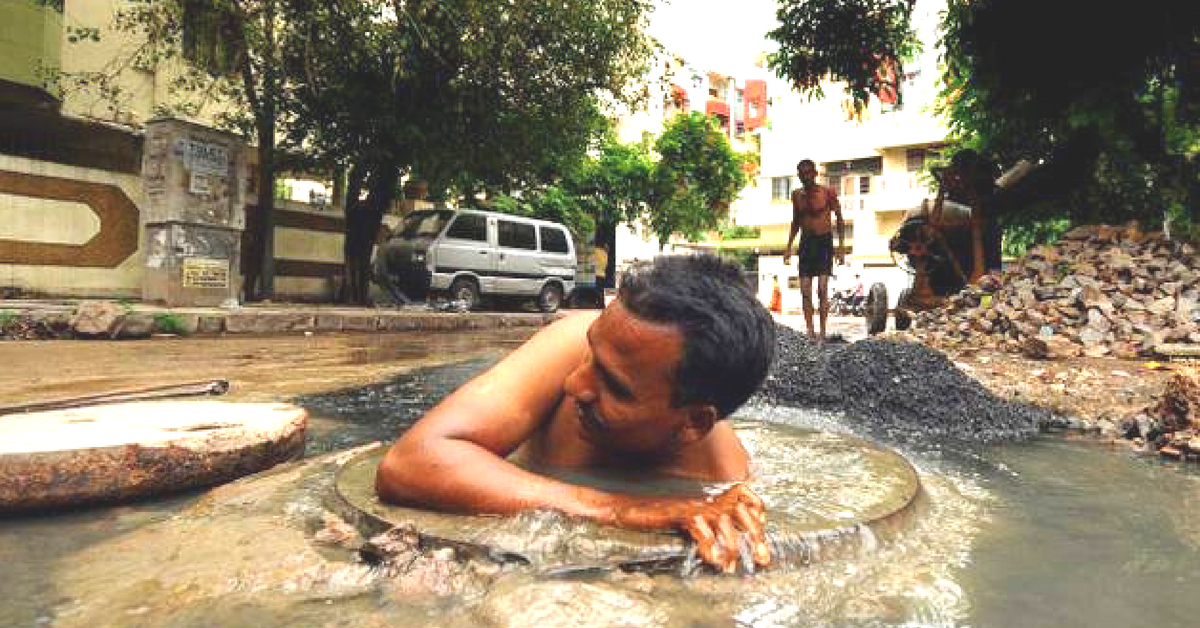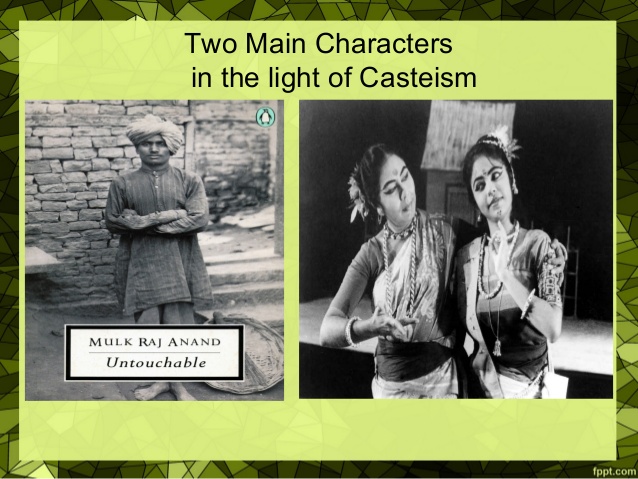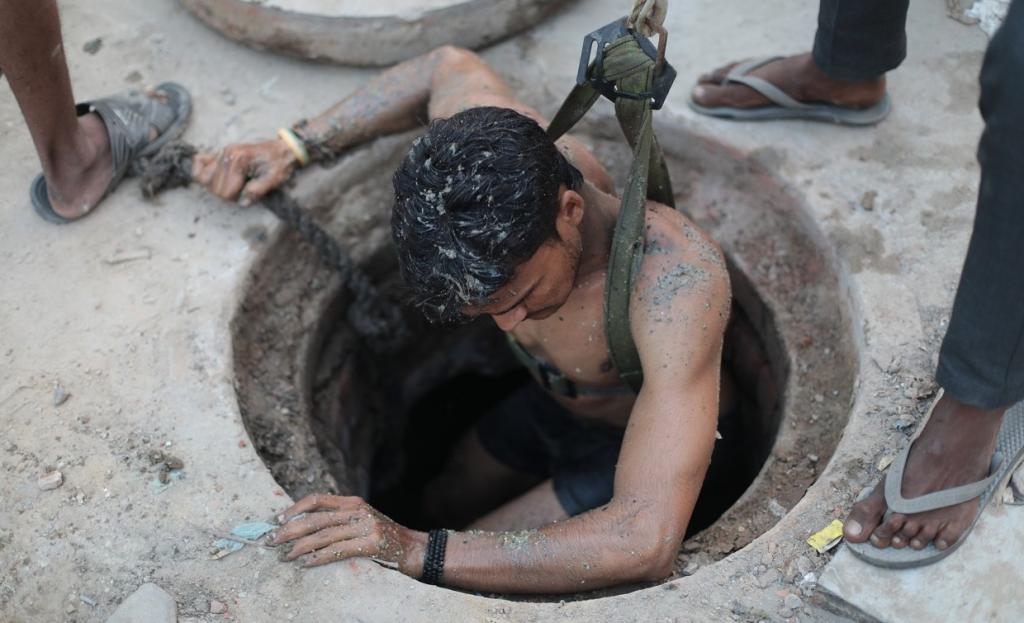In India, we find so much of intemperance. India’s ISRO has successfully consummated the MOM operation on September 24, 2014. Every Indian feels proud to venerate this achievement. On the contrary, in India even till date, the Manual Scavenging prevails in many places across the country. Everyone knows that it’s mucky work but somebody has got to do it for the reason that there is no mechanized system available for this very purpose.
It is worth mentioning here that the practice of people removing human excrement and sewage with their bare hands was made illegal in India some 25 years ago. Of course, it doesn’t mean people have stopped doing it. It is a matter of fact that what is known as manual scavenging has been still in practice in India. According to the Indian government estimates, there are about 600,000 manual scavengers in the country. Also, official estimates say that one worker dies in every five days in India while carrying out manual scavenging. Nevertheless, the figure quoted is the tip of the iceberg as many deaths go unreported. In the year 2017 alone, according to the official data, 221 men died while carrying out the manual scavenging.

In this background, I on the go mulled about Untouchable, a 1935 novel by Muk Raj Anand. In order to understand the pathetic situation being faced by the people who unblock the sewers by bare hands, I believe it is worth reading the summary of the novel to appreciate the point of discussion here.
The novel centers around one day in the life of Bakha, a young sweeper in Bulashah, an imaginary Indian town. Bakha is an untouchable — a member of the lowest caste in outdated Hindu society. As it was practiced in traditional India, untouchables were born into the caste and confined to a life of dirty, menial labor those of higher castes will not perform.
At the beginning of the story, Bakha, the protagonist of the novel, awakes from sleep to his father shrieking at him to get out of bed and begin work of cleaning the toilets of the upper-caste townsfolk. Bakha completes his duty of cleaning the toilets of the upper-caste people in the society and then goes into town to sweep the streets and unintentionally brushes up against a high-caste man. The latter becomes uncompromising that he has been touched by someone like Bakha. The man rebukes and hits Bakha until a Muslim vendor, who has no favor for the Hindu caste system, breaks it up. Then, Bakha walks to the temple, where he finds the priest reproving Sohini of polluting him. Sohini, flustered, reveals Bakha that the priest sexually molested her. Promising to take over her duties, Bakha directs her home.

As the story progresses, Bakha wanders around town, begging for food and carrying out tedious chores in return before becoming too offended with high-caste people’s nastiness to continue. At home, he tells his father about the high-caste man who hit him. In this situation, his father reminds him that a high-caste doctor once saved Bakha’s life. Absolutely, this part of the novel correspondingly represents the good and bad angles of high-caste people in the society at that point.
In the latter part of the novel, after so many incidents happening to Bakha, he ambles away from home, taking space under a tree. Just then, a white man, Colonel Hutchinson, approaches him. He invites Bakha to church. Bakha agrees, but on the steps of the church his wife sees them and pitches a fit about her husband bringing another blackie to their church. As Bakha feels humiliated, he leaves that place.
He wanders some more, ending up at the railway station, where a crowd has congregated. Bakha learns that Mahatma Gandhi was in Bulashah and would address the public. In his speech, Gandhiji condemns the caste system and in particular, discrimination against the Untouchables. He urges the audience to condemn the caste system, as well.
Then, Bakha happens to hear the conversation between two educated friends about Gandhiji’s speech. One of them, a lawyer, finds Gandhi’s ideas as unrealistic and trivial — in his opinion tradition will win out. Another, a poet, strongly disagrees to the opinion of the former. According to him, Untouchability is a barbaric practice that would not continue. Though Bakha understands little of their erudite conversation, he understands through the lawyer’s revealing that flush toilets will soon be brought to India. According to the lawyer, that invention would eliminate much of the need for the untouchable class. Bakha feels a surge of hope and rushes home to tell his family what he has heard.

At the time of this novel’s publication, the caste system dominated India. In Untouchable, author Anand humanizes an untouchable human for his high-caste readers, beseeching them, through his description of Bakha and his family’s suffering, to consider the plight of their low-caste countrymen. This was a novel written in 1935, almost 85 years ago. However, there is no change in the system of unblocking the sewers — we find many Bakha(s), even to this date.
I wonder what does the advancements in technology mean if the systems like manual scavenging still prevail in countries like India. When I was discussing this topic with one of my well-read friends, he raised a question that what would the people who depend upon the manual scavenging do, if everything is mechanized. Of course, my answer was — they would operate the machines rather than operating hands in the sewer.
I really wonder the extremes that I find in India. For example, the proposal of the inception of Bullet Trains at one end and overlooking the pathetic situations like manual scavenging on the other end. If India has to be a truly advanced country, the honorable elected representatives of India should think progress from the bottom-most level like the abolition of manual scavenging — Of course, not at the cost of not showing the alternate means and measures to those involved in this job!
– Dr. Suman Kumar Kasturi












